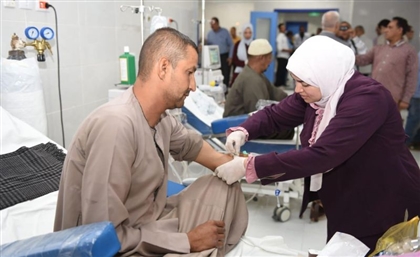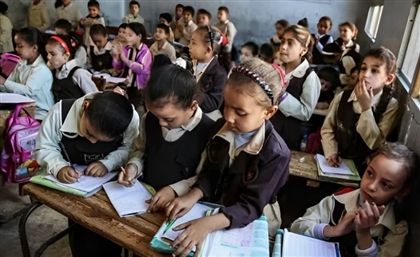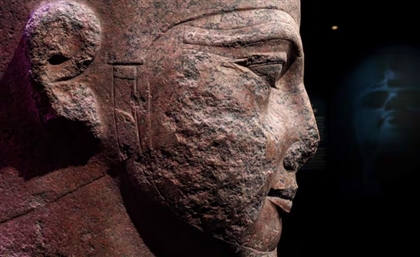Ministry Plans to Fix Egypt's Public Schools
The Ministry of Education has launched a comprehensive plan to overhaul the country's education system.
Minister of Education Mahmoud Abou Nasr unveiled on Saturday a long term plan to rejuvenate the public education system that has been deteriorating for years, according to Al-Ahram daily, causing many to seek education for their children at expensive private schools.
Meeting with President Sisi, Abou Nasr laid out a plan that is set to unfold in various phases. The preliminary stage is slated to begin from 2014 to 2017, and should last until 2030. The plan highlights many of the problems faced by public schools, calling for the elimination of illiteracy, the introduction of a nutrition program, free extra classes, and reducing the number of drop-outs.
The plan is also preparing to send 50,000 to 60,000 teaching graduates to work for a year in Gulf states that lack competent teachers, to build experience for graduates seeking domestic teaching jobs. President Sisi addressed the need for enhancing the status of teachers in Egypt, calling for gradual increase in their salaries, in a bid to regain their public status in society.
Eager to get started with reforms, Abou Nasr, claims that around 30% of the school curriculum has been changed for the coming year, and that more improvements are on the way. Aside from improving the curriculum, Abou Nasr also points out that many of the educational buildings' and facilities' infrastructure requires renovations and expansions if the goal of reaching a maximum of 40 students per class is to be met.
Another part of plan calls for cooperation with entities in the United Arab Emirates, as the ministry plans to focus energy on developing technology in schools in a new program entitled the Million Student Project.
According to Abou Nasr, "Funding is crucial for recruiting teachers, which was one of the obstacles for their plan to be realized." Fully aware of the challenge, the minister is calling on civil society to provide the needed funds to implement the changes and build new schools.
As it stands, public spending on education in the 2014/15 budget will be LE94.4 billion, compared to LE83.5 billion the previous year, according to the finance ministry's website. Article 19 and 21 of the 2014 national charter clearly states that at least four percent of the national budget be allocated to education and two percent to higher education. The new charter also states that the allocated percentages will be gradually increased "until they meet global rates."
Education has suffered major deterioration over the past decades, with many attributing many of the overwhelmingly negative social phenomena that have arisen in recent years to lack of education. With a total illiteracy rate of over 25%, and a widely criticised education system, educational reform has long been one of the most pressing demands in Egypt.
- Previous Article 139 Grill: Dinner With a View
- Next Article Nomades Land
























